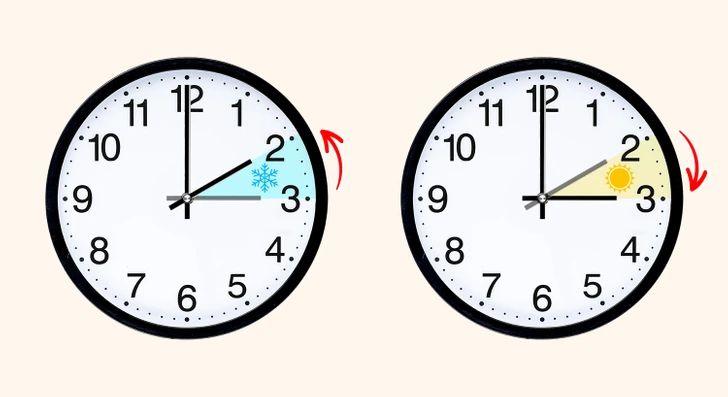Time in Bulgaria and Ukraine in 2024: peculiarities and differences
In 2024, attention to time and its peculiarities is of particular importance, especially for those planning travel or business trips in Eastern Europe. Bulgaria and Ukraine, although neighboring countries, have a number of differences in the time calculation system, which can cause confusion for visitors and locals. In this article, we will look at the main characteristics of the time zones of Bulgaria and Ukraine, as well as touch on the changes that have taken place in both countries in light of recent reforms. Understanding these differences will help you organize your plans for 2024 more effectively.
Table of Contents
- Temporary zones of Bulgaria and Ukraine in 2024: commonalities and differences
- Daylight saving time and winter time: impact on daily life
- Cultural Aspects of Time: Holidays and Traditions in Bulgaria and Ukraine
- Advice for travelers: how to adapt to local time
- Frequent questions and answers
- Conclusion
Temporary zones of Bulgaria and Ukraine in 2024: commonalities and differences
In 2024, Bulgaria and Ukraine will continue to be in different time zones, which may have an impact on business, travel and personal relationships between citizens of both countries. Bulgaria uses Eastern European Time (EET)which corresponds to UTC+2 in standard time and UTC+3 in summer, when the country switches to daylight saving time. Ukraine also uses Eastern European time, but there is a possibility that time changes may be introduced depending on the political situation. This makes it necessary to keep up to date with current news and time changes.
Comparing the features, there are a few key differences between the two countries. While both countries are subject to changes to summer and winter time, in Bulgaria summer time starts on the last Sunday of March and ends on the last Sunday of October. In Ukraine, daylight saving time occurs at the same time. But in the situation with political instability in Ukraine, temporary deviations are possible. This can also cause certain inconveniences in planning events, interstate meetings and travel. It is important to take these differences into account for the successful organization of both processes.

Daylight saving time and winter time: impact on daily life
The transition to summer and winter time in Bulgaria and Ukraine significantly affects the daily life of citizens. Time change can cause temporary discomfort due to the need to adapt to the new rhythm of the day. Many residents report that it takes a few days for them to get used to the change in routine. In particular, sleep problems often arise, as a person's biorhythms can be disrupted.
In addition, daylight saving time This can also affect work processes, as well as the planning of meetings and events. At the business level, this can be challenging, especially when companies have international relationships and work with partners from other countries. Because of this, organizations often develop specific strategies to minimize the impact of changes on productivity. It is also important to consider safety aspects, as the time change may increase the risk of accidents in the morning and evening hours.
Cultural Aspects of Time: Holidays and Traditions in Bulgaria and Ukraine
The holiday culture of both countries is filled with unique traditions and rituals that greatly influence the perception of time. Bulgaria celebrates important holidays such as Todorovden (Todor's Day), Baba Marta (the arrival of spring) and Cyril and Metodius (Teachers' Day). These events are not only celebrated at the level of national importance, but also become important for local communities, where folk festivals and rituals are held. At the same time, Ukraine retains the richness of its traditions, such as Shrovetide и Independence Daywhich are also accompanied by rituals and active celebrations in the streets.
Despite the similarities in a number of holidays, there are notable differences in their interpretation. For example, Bulgaria tends to emphasize family customs such as inviting friends and family on festive meals, while in Ukraine the importance of neighborly relations and social activity characteristic of the celebration is highlighted. Special attention is also paid to the custom of fairs and choreographed holiday performances. Consequently, despite their common Slavic roots, both cultures bring their own unique elements to the table, making each one attractive and rich in its own way.
Advice for travelers: how to adapt to local time
Traveling to a new country often requires time to adapt to the local time, especially when it comes to Bulgaria and Ukraine. To minimize the discomfort of the time zone change, it is worth considering a few simple recommendations. First, a few days before your trip, start changing your sleep schedule: go to bed and wake up an hour earlier or later, depending on your destination. This will help your body adapt more easily to the new time. Second, when you arrive at your destination, try to adjust to the local time immediately by staying awake hours during the day to avoid jet lag.
It's also helpful to use natural light sources to adjust your biorhythm. Keep the following tips in mind:
- Go out on the street at daytime for refreshment;
- Avoid caffeine and alcohol in the hours following your arrival;
- Eat regularly according to the local time schedule.
For clarity, here is a table with the time difference between Bulgaria and Ukraine in 2024:
| Country | Time zone |
|---|---|
| Bulgaria | UTC+2 (UTC+3 in summer) |
| Ukraine | UTC+2 (UTC+3 in summer) |
Even though both regions are in the same time zone, it is important to act consciously to avoid fatigue and enjoy your journey to the fullest.
Frequent questions and answers
Questions and answers about time in Bulgaria and Ukraine in 2024: peculiarities and differences
Q1: What time zone is used in Bulgaria and Ukraine in 2024?
A1: In 2024, Bulgaria is in the Eastern European Time zone (EET, UTC+2) and adopts Eastern European Summer Time (EEST, UTC+3) during the summer period. Ukraine also uses Eastern European Time and adopts daylight saving time in the same way.
Q2: When does daylight saving time start and end in Bulgaria and Ukraine in 2024?
A2: In 2024, daylight saving time in Bulgaria and Ukraine will start on the last Sunday of March (March 31) and end on the last Sunday of October (October 27).
Q3: Are there any peculiarities in daylight saving time in these countries?
A3: In 2024, daylight saving time in Bulgaria and Ukraine will be implemented simultaneously, and there are no distinctive features in the transition. Both countries follow the same international standards.
Q4: What are the implications of daylight saving time and winter time for the inhabitants of these countries?
A4: Daylight saving time and winter time can affect people's daily routines, sleep habits and work schedules. This can cause temporary discomfort until bodies adapt to the time change.
Q5: How can time differences affect business and trade between Bulgaria and Ukraine?
A5: Since both countries are in the same time zone, there are virtually no time differences, which facilitates more convenient interaction in business and trade. This makes it easier to schedule meetings and coordinate projects between companies in the two countries.
Q6: Are there any current changes in legislation relating to time in either country?
A6: At the moment, there are no significant legislative changes regarding time systems in either Bulgaria or Ukraine. However, as with any other aspect, legislation may be subject to change and it is important to keep an eye on official announcements.
Q7: What are the recommendations for travelers between Bulgaria and Ukraine?
A7: Travelers are advised to consider the time difference in advance when planning travel, especially when it comes to flights and appointments. However, since both countries are in the same time zone, it makes traveling between them much easier.
Conclusion
Examining the temporal patterns and differences between Bulgaria and Ukraine in 2024 provides a deeper understanding of how historical, cultural and geographical factors influence the perception of time in each country. Despite commonalities, such as the transition to summer/winter time, there are important differences that can affect the planning of travel, business meetings and everyday life of citizens. Understanding these aspects is essential for those planning to travel or interact with these countries. We hope this article has helped you better understand the temporal reality of Bulgaria and Ukraine in the context of 2024.






